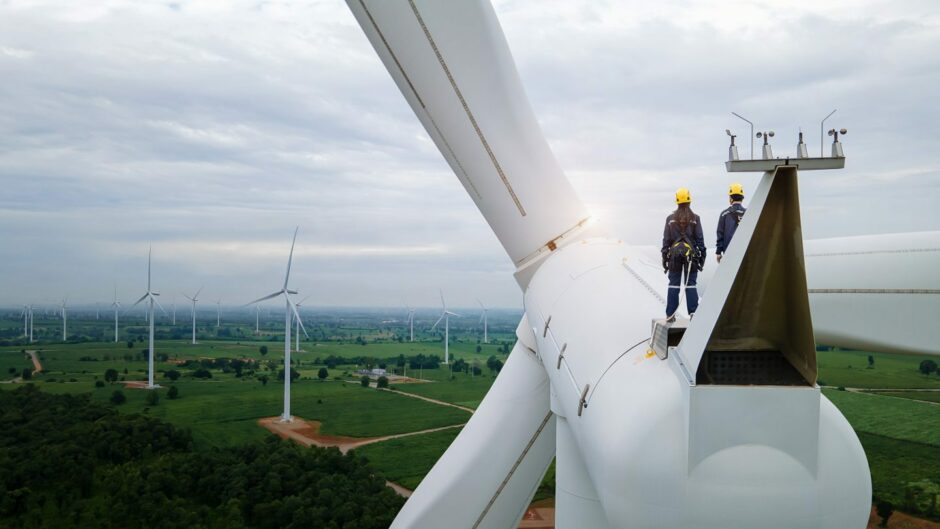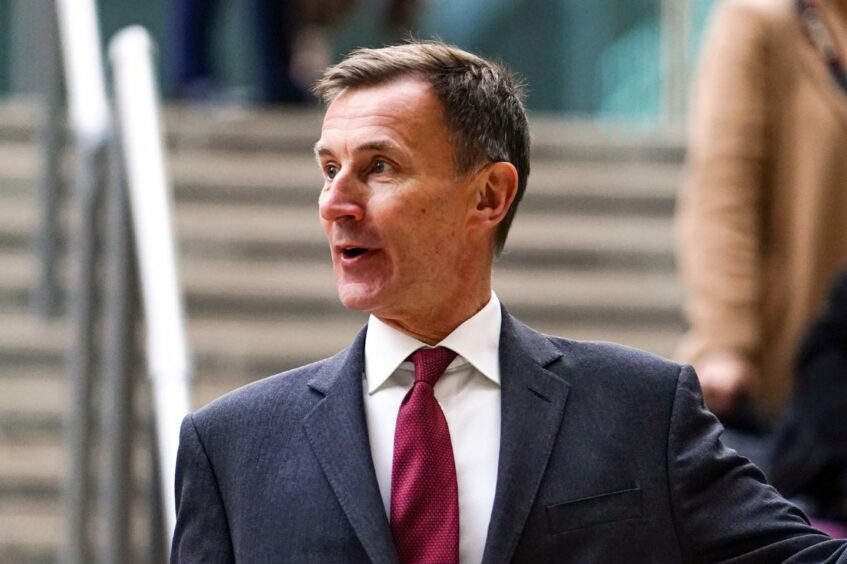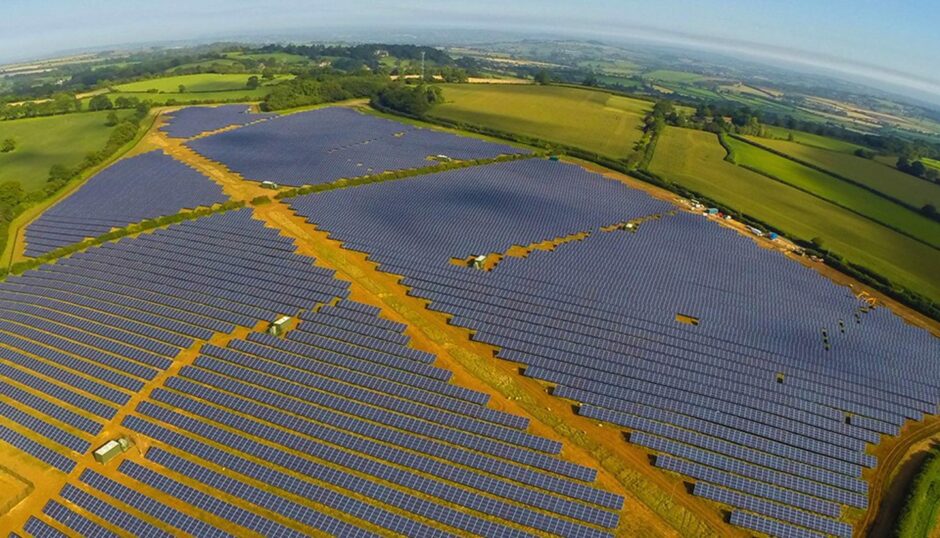
Westminster’s intervention in the electricity market risks “mothballing a series of multi-billion pound” green energy projects, a major investor has warned.
Community Windpower says the “US and EU are doing all they can” to attract renewables spend, while the UK is “doing all it can to deter it” by imposing the electricity generator levy (EGL).
As a result of the policy, the UK is now on the back foot in the global “renewable energy ‘arms race’”.
The company also echoed recent fears voiced by a group of trade associations from across the energy sector about the EGL.
In a letter to the Chancellor, five groups – representing over 750 companies – warned that the UK’s competitiveness as an investment destination for clean energy is at “severe risk”.
They also called on Jeremy Hunt to prioritise incentives for green growth in his upcoming spring budget.
‘Extraordinary profits’
Announced as part of Mr Hunt’s autumn budget, and applicable from the start of 2023, the green energy windfall tax imposes a temporary 45% levy on “extraordinary profits”.
When taken with corporation tax, the EGL brings the headline rate on earnings for renewables firms to 70%, without the spend relief afforded to oil and gas companies.
It will not apply to developments that are covered by a contract for difference (CFD) – those that have such a deal tend to be newer schemes.
Community Windpower – a £2 billion investor in over 1.5 gigawatts (GW) of UK onshore wind energy – previously threatened to take the UK Government to court over the EGL.
An ‘arms race’
“Make no mistake, we are in the midst of a renewable energy ‘arms race’. The US and EU are doing all they can to attract investment in renewables, yet the UK appears to be doing all it can to deter it,” said Rod Wood, managing director of Community Windpower.
“Current proposals risk mothballing a series of multi-billion pound infrastructure projects, including our own. Green investment, and thousands of linked high-quality jobs, will simply be diverted to the US or Europe where investors are being welcomed with open arms.”
The US set out its green energy stall last year with the publishing of the Inflation Reduction Act, detailing plans to invest some £300bn in renewables.
Meanwhile the EU Green Deal Industrial Plan will spark €250bn of investment to scale up of the EU’s manufacturing capacity.
But Community Windpower says UK policy is “pulling in entirely the opposite direction”, and offers “no incentives to invest in the renewable sector”
Three demands
In order to “match competing nations” in the energy transition push, the company has made three demands of government.
It has called for a “comparable new funding package for low carbon energy investments” to be introduced, as well as for the EGL to be removed from green projects, including solar and onshore wind.
Community Windpower also wants government to implement an 80% investment allowance to encourage global capital to invest in the UK.
Mr Wood added: “We are calling for the Government to exclude new clean energy projects to be excluded from the EGL and an Investment Allowance of 80% in line with oil and gas to be introduced.
“While we fully support the CBI’s call to introduce an investment allowance under the EGL, this in itself is not enough for the UK’s renewable energy sector to survive.
“Put simply, the UK’s renewable energy sector hangs in the balance if the Government doesn’t listen to industry and adjust the EGL.
“Our alternative proposals, submitted to government, offer a way to ensure revenues are raised whilst protecting our low carbon energy sector.
“Our approach is backed by everyone, from the Industry Trade Bodies to the Confederation of British Industry.”
An HM Treasury spokesperson said: “The Energy Generator Levy is a temporary measure which is not designed to penalise electricity generators – it is a response to some electricity generators realising extraordinary returns from higher electricity prices because of exceptional and unforeseen geopolitical events.
“The continued investment of generators in the industry is vital to our long-term energy security and this levy leaves them with a share of the upside they receive at times of high wholesale prices”.
Recommended for you


 © Jordan Pettitt/PA Wire
© Jordan Pettitt/PA Wire © Supplied by SSE Renewables
© Supplied by SSE Renewables © Supplied by BSR
© Supplied by BSR